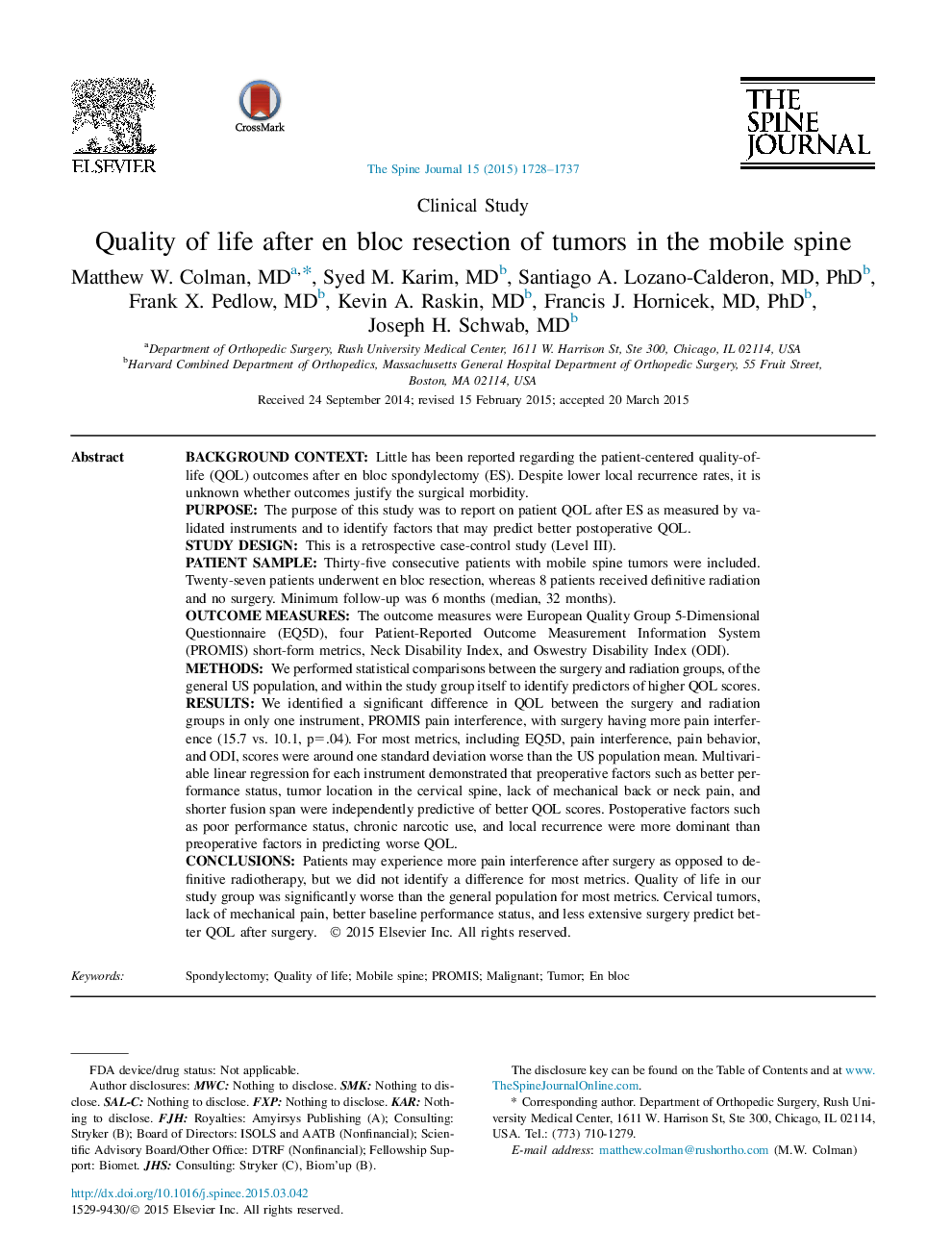| کد مقاله | کد نشریه | سال انتشار | مقاله انگلیسی | نسخه تمام متن |
|---|---|---|---|---|
| 6212450 | 1268580 | 2015 | 10 صفحه PDF | دانلود رایگان |
Background contextLittle has been reported regarding the patient-centered quality-of-life (QOL) outcomes after en bloc spondylectomy (ES). Despite lower local recurrence rates, it is unknown whether outcomes justify the surgical morbidity.PurposeThe purpose of this study was to report on patient QOL after ES as measured by validated instruments and to identify factors that may predict better postoperative QOL.Study designThis is a retrospective case-control study (Level III).Patient sampleThirty-five consecutive patients with mobile spine tumors were included. Twenty-seven patients underwent en bloc resection, whereas 8 patients received definitive radiation and no surgery. Minimum follow-up was 6 months (median, 32 months).Outcome measuresThe outcome measures were European Quality Group 5-Dimensional Questionnaire (EQ5D), four Patient-Reported Outcome Measurement Information System (PROMIS) short-form metrics, Neck Disability Index, and Oswestry Disability Index (ODI).MethodsWe performed statistical comparisons between the surgery and radiation groups, of the general US population, and within the study group itself to identify predictors of higher QOL scores.ResultsWe identified a significant difference in QOL between the surgery and radiation groups in only one instrument, PROMIS pain interference, with surgery having more pain interference (15.7 vs. 10.1, p=.04). For most metrics, including EQ5D, pain interference, pain behavior, and ODI, scores were around one standard deviation worse than the US population mean. Multivariable linear regression for each instrument demonstrated that preoperative factors such as better performance status, tumor location in the cervical spine, lack of mechanical back or neck pain, and shorter fusion span were independently predictive of better QOL scores. Postoperative factors such as poor performance status, chronic narcotic use, and local recurrence were more dominant than preoperative factors in predicting worse QOL.ConclusionsPatients may experience more pain interference after surgery as opposed to definitive radiotherapy, but we did not identify a difference for most metrics. Quality of life in our study group was significantly worse than the general population for most metrics. Cervical tumors, lack of mechanical pain, better baseline performance status, and less extensive surgery predict better QOL after surgery.
Journal: The Spine Journal - Volume 15, Issue 8, 1 August 2015, Pages 1728-1737
